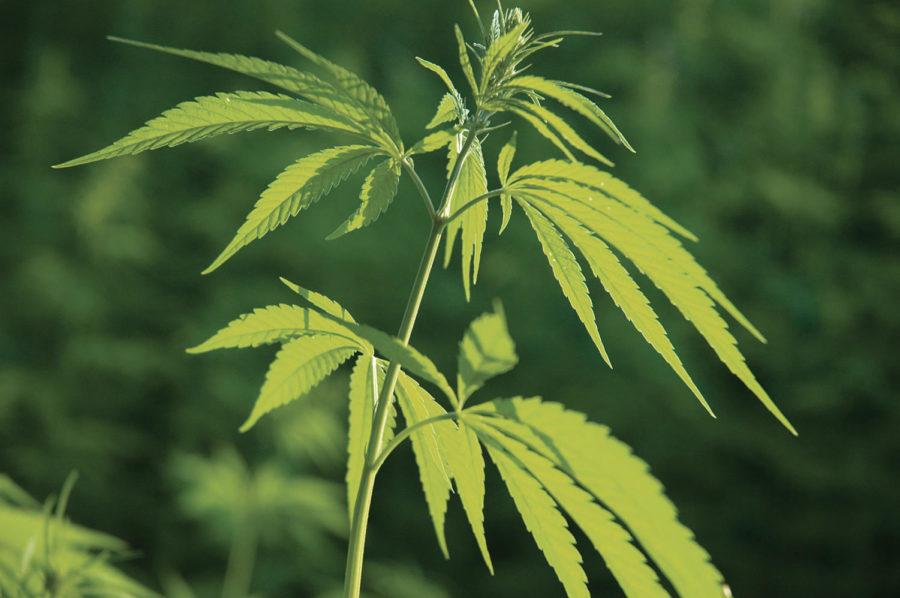Watson: This 4/20, consider the legitimate uses of hemp
Growing hemp, a member of the same family as marijuana, is illegal in the United States, despite the fact it has no psychoactive properties. Hemp products, however, can be imported and sold legally within the United States.
April 20, 2012
Apocynum cannabinum, otherwise known as hemp, is among the world’s most efficient, lucrative and useful plants. The United States is the only industrialized nation to not see the advantages of hemp as an industry; it is illegal to grow within the confines of American borders. The Columbia History of the World claims the oldest bit of cloth was made of hemp and dates back to approximately 8,000 B.C., and is also the earliest sign of industry amongst the human race.
Let’s set the record straight. Hemp, a crop grown since the beginning of time, is a part of the ‘marijuana’ family. Hemp is capable of no psychoactive side effects whatsoever; that characteristic belongs to another member of the marijuana family. Still, hemp is lumped into the same legal category as the infamous ‘pot plant.’
Most people of our generation, just as myself, are avid “Family Guy” watchers. In a “4/20 friendly” episode, Brian (the dog), explains why marijuana is illegal in America. Determined to prove to myself this cartoon character’s reasons were a mere fabrication to push a private agenda, I did some researching myself. This is America after all, where liberty is given to all and fairness is a priority, right? I found myself disappointed.
Let me give you a brief history lesson. In the early part of the 20th century, William Hearst had a vicious feud over media dominance with adversary Joseph Pulitzer. Hearst and Pulitzer owned and controlled the largest publications and media outlets of the day. In a battle for media dominance, the two began a decadent fad of “yellow journalism,” where information was essentially fabricated and exaggerated to the point of containing almost no credibility at all.
The two moguls also owned a great many other industries, one of which was an enormous tree-milling industry owned by Hearst. Hemp could also be used to make paper with more ease and of better quality than trees. Hearst, coupled with DuPont, who owned patents to an oil-based synthetic used to make rope, went on a smear campaign to malign and vilify marijuana (and hemp along with it). The reality is, hemp is illegal today for reasons of greed, and was taken off the market by means of a distant psychedelic relative it is often confused with.
Some claim this is all nothing more than a conspiracy theory with no truth. There are few websites to offer any insight to the de-legalization process hemp went through, certainly no .gov sites. But then again, there wouldn’t be, would there? But the facts are, Hearst and DuPont both had vested interests and pushed for illegalization of all marijuana species. Another fact: Andrew Mellon, a large oil industry executive of the time, had a nephew who became the first head of the Federal Bureau of Narcotics and made the push to de-legalize marijuana.
Hemp, (a non-hallucinogenic plant, the same as trees or grass), has many uses other than simply making twine; the seeds for instance, are filled with nutritious oils, healthy for both human and animal consumption. Actually, hempseed oil contains more polyunsaturated fats than any other plants in the animal kingdom. It also meets the natural requirements of fatty acids and oils for humans better than even fish oil supplements. If that weren’t enough, the oil also contains a rare fatty acid called gamma-linolenic acid, used to treat everything from arthritis to neurodermatitis to premenstrual syndrome.
Some other uses for hemp which could change industry as we know it today include: paper (the Gutenburg Bible, Magna Carta and first draft of the Declaration of Independence were all printed on hemp), clothing/ rope products (stronger, more resistant to degradation, and softer than cotton or other fabrics) and let’s not forget about oil as a fossil fuel substitute; many researchers suggest it could be one of the better biofuel sources.
Making hemp illegal is the definition of overzealous legislation. It should make you question the true motives of lawmakers from time to time. We live in a corrupt world when a boon to the economy is sacrificed for no other reason than profit and greed. There was a time when ignorance could be claimed for keeping hemp illegal, but those days are long past. What’s the reason now? Ironically, it’s perfectly legal to import hemp products made outside the United States, then turn around and sell the finished products, but it remains illegal to grow it.
Why is hemp maligned, marginalized and forgotten because of its psychoactive cousin? It’s apples and oranges; you wouldn’t fire a hardworking young man who’s more efficient than the rest of your employees just because his lazy brother gives him a bad name.
Conduct your own research and form your own opinions. Who knows what else we may be missing out on because of a misconception followed by blatant ignorance?

















